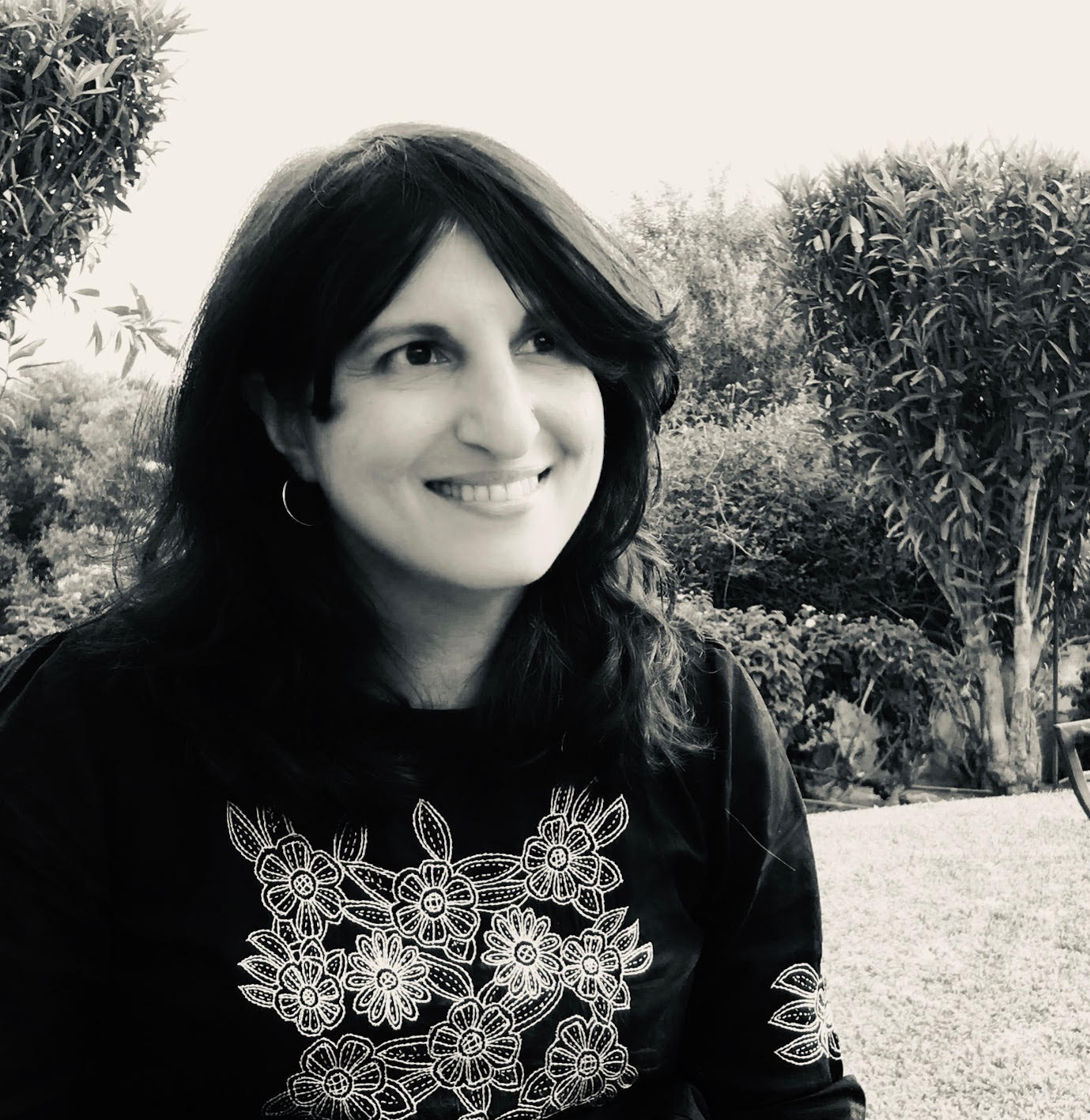Firstly *breathe*. In all the years (almost 10) I’ve been doing this, I’ve never been more excited to do a books roundup or a single post. In terms of fiction, 2017 is filled with nothing short of genius. I’m already expecting my own writing to fall by the wayside in honour of the books published this year. A chronological list would make sense here so here’s the ultimate list of books to have on your TBR pile in 2017 in order of publication date:
NADEEM ASLAM, THE GOLDEN LEGEND
I’ve been guilty of neglecting Aslam’s critically acclaimed writing for too long. This is his fifth novel and I’ve been promising myself to get round to both Maps for Lost Lovers and The Wasted Vigil forever, ever since I met him back in 2008! So the publication of his latest novel is my chance to put things right.
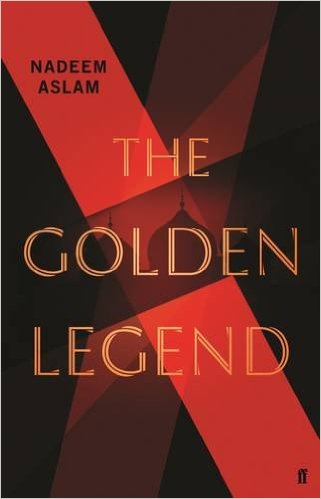 When shots ring out on the Grand Trunk Road, Nargis’s life begins to crumble around her. Her husband, Massud – a fellow architect – is caught in the crossfire and dies before she can confess to him her greatest secret. Under threat from a powerful military intelligence officer, who demands that she pardon her husband’s American killer, Nargis fears that the truth about her past will soon be exposed. For weeks someone has been broadcasting people’s secrets from the minarets of the city’s mosques and, in a country where the accusation of blasphemy is a currency to be bartered, the mysterious broadcasts have struck fear in Christians and Muslims alike.
When shots ring out on the Grand Trunk Road, Nargis’s life begins to crumble around her. Her husband, Massud – a fellow architect – is caught in the crossfire and dies before she can confess to him her greatest secret. Under threat from a powerful military intelligence officer, who demands that she pardon her husband’s American killer, Nargis fears that the truth about her past will soon be exposed. For weeks someone has been broadcasting people’s secrets from the minarets of the city’s mosques and, in a country where the accusation of blasphemy is a currency to be bartered, the mysterious broadcasts have struck fear in Christians and Muslims alike.
Against this background of violence and fear, two outsiders – the young Christian woman Helen and the mysterious Imran from Kashmir – try to find an island of calm in which their love can grow. In his characteristically luminous prose, Nadeem Aslam reflects Pakistan’s past and present in a single mirror – a story of corruption, resilience, and the hope that only love and the human spirit can offer.
NADIYA HUSSAIN, THE SECRETS LIVES OF THE AMIR SISTERS
Since she won The Great British Bake Off in 2015, Hussain has been propelled into celebrity-dom, baked a cake for the Queen, featured a regular column in The Times and been the star of her own TV show. You may wonder whether we really needed a novel from her, too? Novel writing is a craft, and I’ll be surprised if Hussain hasn’t had some real hands-on help with this (Ayisha Malik is credited on the author page), but I’ll still be reading this out of curiosity and in honour of the queen of cakes.
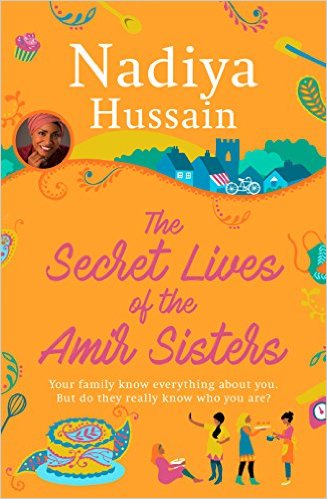
The four Amir sisters – Fatima, Farah, Bubblee and Mae – are the only young Muslims in the quaint English village of Wyvernage.
On the outside, despite not quite fitting in with their neighbours, the Amirs are happy. But on the inside, each sister is secretly struggling.
Fatima is trying to find out who she really is – and after fifteen attempts, finally pass her driving test. Farah is happy being a wife but longs to be a mother. Bubblee is determined to be an artist in London, away from family tradition, and Mae is coping with burgeoning Youtube stardom.
Yet when family tragedy strikes, it brings the Amir sisters closer together and forces them to learn more about life, love, faith and each other than they ever thought possible.
RISHI DASTIDAR, TICKER-TAPE
It was no surprise to me when I heard last year that Dastidar was to be published by Nine Arches Press. For anyone familiar with Dastidar’s verses knows that this collection is long over due. He’s brilliant, as are Nine Arches Press, so I’m expecting lots of noise and love for this.
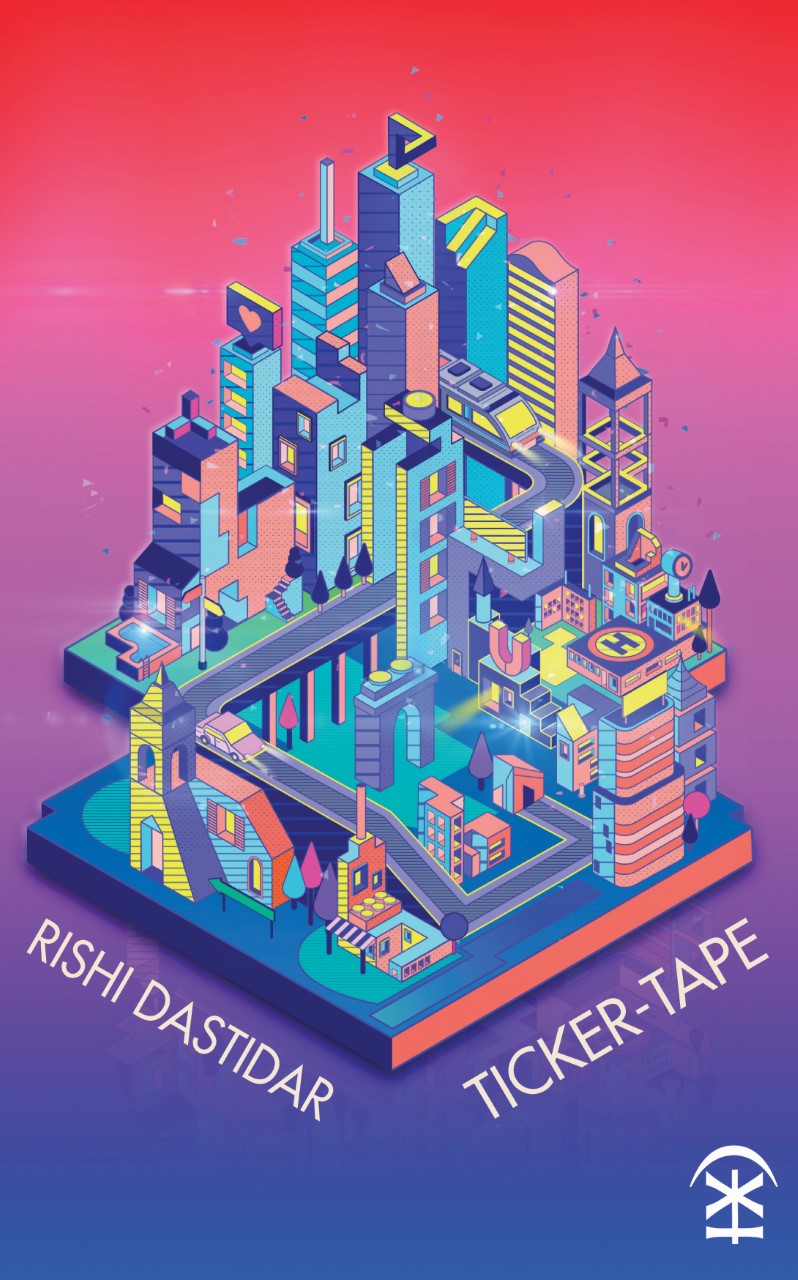 From politics to pop, from the UK to California, wherever digital heartbeats flutter and stutter, Ticker-tape is a maximalist take on 21st century living. Rishi Dastidar’s first full collection showcases one of contemporary poetry’s most distinctive voices, delivering effervescence with equal servings of panache and whiplash-quick wit.
From politics to pop, from the UK to California, wherever digital heartbeats flutter and stutter, Ticker-tape is a maximalist take on 21st century living. Rishi Dastidar’s first full collection showcases one of contemporary poetry’s most distinctive voices, delivering effervescence with equal servings of panache and whiplash-quick wit.
Here is sheer madcap ingenuity and also impressive breadth; ranging from odes of love to deconstructed diversity campaigns and detonations of banter’s worst excesses, plus appearances from ex-SugaBabes, a shark who comes to tea, to the matters of matchstick empires and national identity. Ticker-tape is bold, adventuresome and wry – an unmissable and irrepressible debut.
SABRINA MAHFOUZ (editor), THE THINGS I WOULD TELL YOU
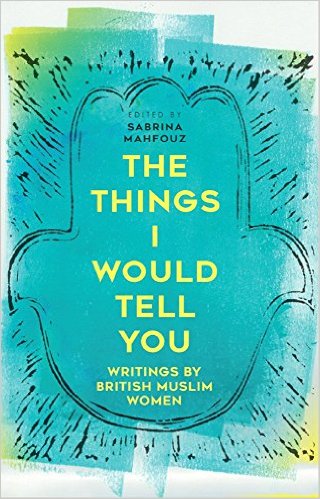
The ‘Muslim woman’ evokes a whole host of fearful images: from obsession over garments, which has seen headscarves ripped off, to her repressed culture that denies freedom, she has become a prisoner of competing words. The Things I Would Tell You intervenes in and dispels the narrow image of what a Muslim woman looks like, bringing together the works of over twenty women writers of Muslim heritage, from established heavyweights such as Ahdaf Soueif, Leila Aboulela and Kamila Shamsie, to young emerging artists such as Asma Elbadawi, Amina Jama and Nafeesa Hamid.
Edited by award-winning poet Sabrina Mahfouz, this unique anthology includes specially commissioned poetry, fiction and prose exploring questions of love, identity and belonging, as well as racism and the position of women. The Things I Would Tell You proudly showcases the talent and tenacity of these women writers, helping to widen the discussion about what it means to be a British Muslim woman today – in their own words.
MOHSIN HAMID, EXIT WEST
He was the first author I ever interviewed for The Asian Writer so naturally, Mohsin Hamid holds a very special place in my heart. His novels, Mothsmoke, The Reluctant Fundamentalist and How to Get Filthy Rich in Asia have all achieved critical and commercial success and firmly placed him as one of the most important voices of the 21st century. Hamid has that rare ability to capture the mood of our time, and leave us with a profound message of the world we live in today and his latest offering follows in similar fashion.
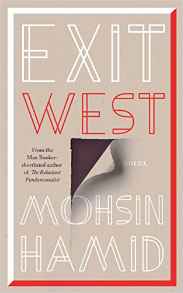
In a city swollen by refugees but still mostly at peace, or at least not yet openly at war, Saeed and Nadia share a cup of coffee, and their story begins. It will be a love story but also a story about war and a world in crisis, about how we live now and how we might live tomorrow.
Before too long, the time will come for Nadia and Saeed to leave their homeland. When the streets are no longer useable and all options are exhausted, this young couple will join the great outpouring of those fleeing a collapsing city, hoping against hope, looking for their place in the world . . .
IRFAN MASTER, OUT OF HEART
Master’s debut novel, A Beautiful Lie tells a powerful story about a boy trying his best to protect his dying father during the Partition. It won him much critical acclaim and was shortlisted for the Children’s Waterstone Prize, the Muslim Writers Awards, and the Branford Bose. I’ve been anticipating a second novel for a while. Master’s a great storyteller, so I have high hopes for this:
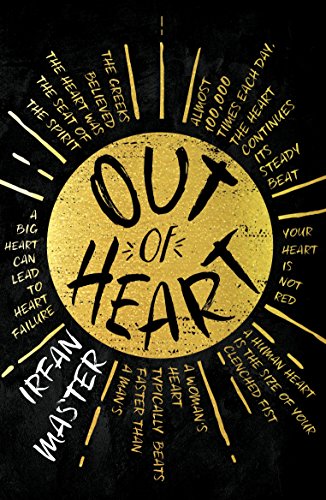
Donating your heart is the most precious gift of all. Adam is a teenage boy who lives with his mum and younger sister. His dad has left them although lives close by. His sister no longer speaks. His mum works two jobs. Adam feels the weight of the world upon his shoulders. Then his grandfather dies and in doing so he donates a very precious gift – his heart.
William is the recipient of Adam’s grandfather’s heart. He has no family and feels rootless and alone. In fact, he feels no particular reason to live. And then he meets Adam’s family. William has received much, but it appears that he has much to offer Adam and his family too.
A powerful tale of love and strength in adversity.
THE OTHER HALF OF HAPPINESS, AYISHA MALIK
I’m so thrilled that Sofia Khan is back but as an avid fan of Malik’s much celebrated debut novel, Sofia Khan is not Obliged I’m slightly nervous. Here’s hoping this second effort matches up to it’s first. Sequels are never as good are they? You’ll just have to judge for yourselves.
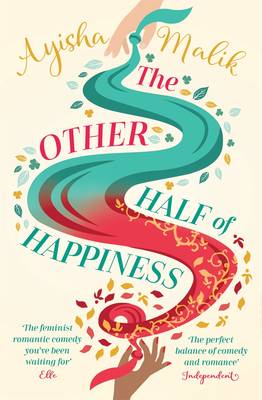
Sofia Khan is just married. But no-one told her life was going to be this way . . .
Her living situation is in dire straits, her husband Conall is distant, and his annoyingly attractive colleague is ringing all sorts of alarm bells.
When her mother forces them into a belated wedding ceremony (elopement: you can run, but you can’t hide), Sofia wonders if it might be a chance to bring them together. But when it forces Conall to confess his darkest secret, it might just tear them apart.
HARI KUNZRU, WHITE TEARS
Widely regarded as one of the most talented fiction writers today, Kunzru’s much anticipated novel, White Tears follows the story of two twenty-something New Yorkers: Seth, awkward and shy, and Carter, the trust fund hipster. They have one thing in common: an obsession with music.
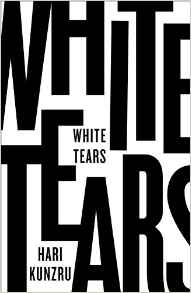 Rising fast on the New York producing scene, they stumble across an old blues song long forgotten by history — and everything starts to unravel. Carter is drawn far down a path that allows no return, and Seth has no choice but to follow his friend into the darkness.
Rising fast on the New York producing scene, they stumble across an old blues song long forgotten by history — and everything starts to unravel. Carter is drawn far down a path that allows no return, and Seth has no choice but to follow his friend into the darkness.
Trapped in a game they don’t understand, Hari Kunzru’s characters move unsteadily across the chessboard, caught between black and white, performer and audience, righteous and forsaken. But we have been here before, oh so many times over, and the game always ends the same way . . .
Electrifying, subversive and wildly original, White Tears is a ghost story and a love story, a story about lost innocence and historical guilt. This unmissable novel penetrates the heart of a nation’s darkness, encountering a suppressed history of greed, envy, revenge and exploitation, and holding a mirror up to the true nature of America today.
MEENA KANDASAMY, WHEN I HIT YOU
A mention of this by Atlantic’s publicist, Kirsty Doole had me in a bit of a frenzy over the weekend. For anyone who’s read Kandasamy’s debut novel, The Gypsy Goddess knows to expect the unexpected. She’s bold, fearless and highly original.
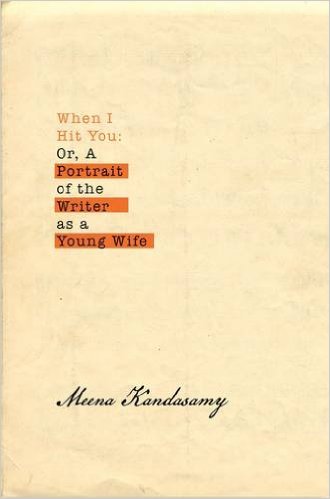 Seduced by politics and poetry, the unnamed narrator falls in love with a university professor and agrees to be his wife, but what for her is a contract of love is for him a contract of ownership. As he sets about reducing her to his idealised version of a kept woman, bullying her out of her life as an academic and writer in the process, she attempts to push back – a resistance he resolves to break with violence and rape.
Seduced by politics and poetry, the unnamed narrator falls in love with a university professor and agrees to be his wife, but what for her is a contract of love is for him a contract of ownership. As he sets about reducing her to his idealised version of a kept woman, bullying her out of her life as an academic and writer in the process, she attempts to push back – a resistance he resolves to break with violence and rape.
Smart, fierce and courageous When I Hit You is a dissection of what love meant, means and will come to mean when trust is undermined by violence; a brilliant, throat-tightening feminist discourse on battered faces and bruised male egos; and a scathing portrait of traditional wedlock in modern India.
VASEEM KHAN, THE STRANGE DISAPPEARANCE OF A BOLLYWOOD STAR
I’m not sure who’s looking forward to this more, me or my 12 year old. This is set to be another crowd pleaser for fans of the Inspector Chopra and baby Ganesha series.
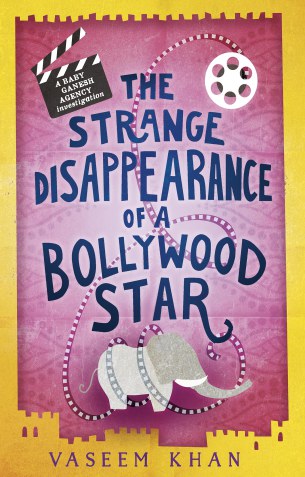
Mumbai thrives on extravagant spectacles and larger-than-life characters. But even in the city of dreams, there is no guarantee of a happy ending.
Rising star and incorrigible playboy Vikram Verma has disappeared, leaving his latest film in jeopardy. Hired by Verma’s formidable mother to find him, Inspector Chopra and his sidekick, baby elephant Ganesha, embark on a journey deep into the world’s most flamboyant movie industry.
As they uncover feuding stars, failed investments and death threats, it seems that many people have a motive for wanting Verma out of the picture.
And yet, as Chopra has long suspected, in Bollywood the truth is often stranger than fiction…
ARUNDHATI ROY, THE MINISTRY OF UTMOST HAPPINESS
Twenty years after her debut novel, The God of Small Things took the literary world by storm, Roy’s second novel is published this June. It is one of, if not, the most anticipated novel of 2017. The front cover remains a mystery for now, but here’s what we know about Roy’s second novel:
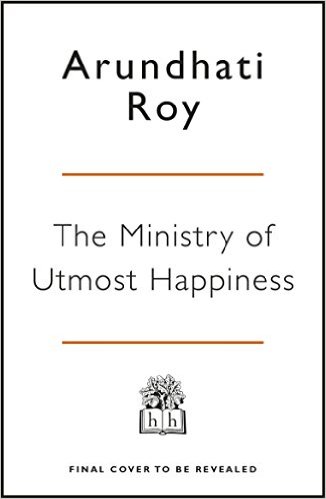
In a city graveyard a resident unrolls a threadbare Persian carpet between two graves. On a concrete sidewalk a baby appears quite suddenly, a little after midnight, in a crib of litter. In a snowy valley, a father writes to his five-year-old daughter about the number of people that attended her funeral.
In a second-floor apartment, watched over by a small owl, a lone woman feeds a baby gecko dead. And in the Jannat Guest House, two people who’ve known each other all their lives sleep with their arms wrapped around one another as though they have only just met.
Arundhati Roy’s new novel gives us a glorious cast of unforgettable characters, caught up in the tide of history, each in search of a place of safety. Told with a whisper, with a shout, with tears and with a laugh, it is a love story and a provocation. Its heroes, present and departed, human and animal, have been broken by the world we live in and then mended by love. And for this reason, they will never surrender.
MAHSUDA SNAITH, THE THINGS WE THOUGHT WE KNEW
Mahsuda Snaith’s writing first came to my attention when I was on a local judging panel for a writing commission. I was surprised that I hadn’t heard of her before, as she lived locally to me so was thrilled when she entered The Asian Writer Short Story Prize 2012 soon after. Snaith was shortlisted for the prize, and I’ve since had the pleasure to work with her on a number of writing projects. The Things we Thought We Knew has already won a major literary prize (SI Leeds Prize) and Snaith features in the Observers new faces of fiction 2017 in coming days. I’m super proud of my friend, and know this won’t disappoint:
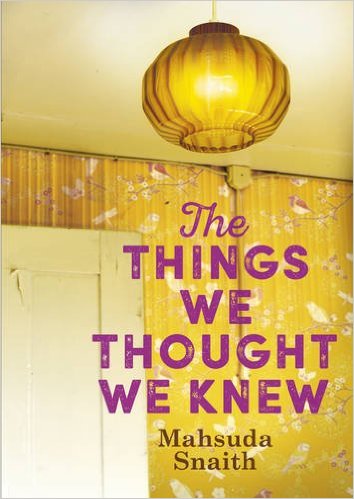
Ravine and Marianne were best friends. They practised handstands together, raced slugs, and looked up at the stars and imagined their own constellations. And then, one day, Marianne disappeared.
Ten years later, Ravine lies in a bed in her mother’s council flat, plagued by chronic pain syndrome, writing down the things we remembers. As her words fill page after page, she begins to understand that the only way to conquer her pain is to confront the horrors of her past.
Heartbreaking, seductive and utterly unforgettable, The Things We Thought We Knew is a rich and powerful novel about the things we remember and the things we wish we could forget.
ABIR MUKHERJEE, A NECESSARY EVIL
It comes as no surprise to me that Captain Wyndham returns for another edition. Mukherjee’s debut, A Rising Man set in 1920’s India was brilliant. In this second series, Captain Wyndham and Sergeant Banerjee of the Calcutta Police Force return to investigate the dramatic assassination of a Maharajah’s son.
The fabulously wealthy kingdom of Sambalpore is home to tigers, elephants, diamond mines and the beautiful Palace of the Sun. But when the heir to the throne is assassinated in the presence of Captain Sam Wyndham and Sergeant ‘Surrender-Not’ Banerjee, they discover a kingdom riven with suppressed conflict. Prince Adhir was a moderniser whose attitudes – and romantic relationship – may have upset the more religious elements of his country, while his brother – now in line to the throne – appears to be a feckless playboy.
As Wyndham and Banerjee desperately try to unravel the mystery behind the assassination, they become entangled in a dangerous world where those in power live by their own rules and those who cross their paths pay with their lives. They must find a murderer, before the murderer finds them
PRETI TANEJA, WE THAT ARE YOUNG
Taneja is already being dubbed as a ‘one to watch’. In 2015 she won the Gatehouse New Fiction Prize for her novella, Kumkum Malhotra (Gatehouse Press), and a year earlier was in 2014 named as one of 10 prestigious BBC New Generation Thinkers. Preti’s debut novel, We That are Young, is a ‘superb’ retelling of Shakespeare’s King Lear set in contemporary India. Her publisher, Galley Beggar Press have already made comparisons to their award winning author, Eimear McBride so I’m expecting big things here.
KAMILA SHAMSIE, HOME FIRE
I’ve been in awe of Shamsie ever since I read Kartography at university. She’s been a master of tackling big topics and handling different eras with ease. She’s one of those writers who sweeps you into their world, making you forget about everything else. (Very much something I am longing for in our post-Brexit, Trump presidency of 2017 and beyond) With some six novels already under her belt, I’m expecting this to be a masterclass in writing stand-out fiction.
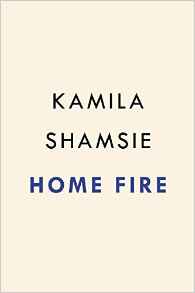 Practical-minded Isma has spent the years since her mother s death watching out for her twin brother and sister in their North London home. When an invitation to grad school in America comes through unexpectedly, it brings the irresistible promise of freedom too long deferred. But even an ocean away, Isma can t stop worrying about her beautiful, headstrong, politically inclined sister, Aneeka, and Parvaiz, their brother, who seems to be adrift until suddenly he is half a globe away in Raqqa, trying to prove himself to the dark legacy of the father he never knew, with no road back.
Practical-minded Isma has spent the years since her mother s death watching out for her twin brother and sister in their North London home. When an invitation to grad school in America comes through unexpectedly, it brings the irresistible promise of freedom too long deferred. But even an ocean away, Isma can t stop worrying about her beautiful, headstrong, politically inclined sister, Aneeka, and Parvaiz, their brother, who seems to be adrift until suddenly he is half a globe away in Raqqa, trying to prove himself to the dark legacy of the father he never knew, with no road back.
Then Eamonn Lone enters the sisters lives. Son of a powerful political figure, he has his own birthright to live up to or defy. Is he to be a chance at love? The instrument of Parvaiz s salvation? Suddenly, two families fates are inextricably, devastatingly entwined.
SONYA LALLI, THE ARRANGEMENT
A funny, warm debut novel pitched as Bridget Jones’s Diary meets Bend it Like Beckham. Make of that, what you will! Twenty-nine year-old Raina is still unmarried and battling her family’s expectations for her future – they think that by now she should have been married in a dream Indian wedding. The pressure reaches new heights when her grandmother, Nani, decides to play matchmaker in order to find her the perfect arranged marriage. Eager not to disappoint her family, Raina goes along with the plan but when the love of her life returns – ex-boyfriend Dev – she’s forced to confront her true feelings. As she tries to free herself from the cultural pressures she faces, Raina realises that sometimes you have to disappoint those closest to you in order to forge your own path.

